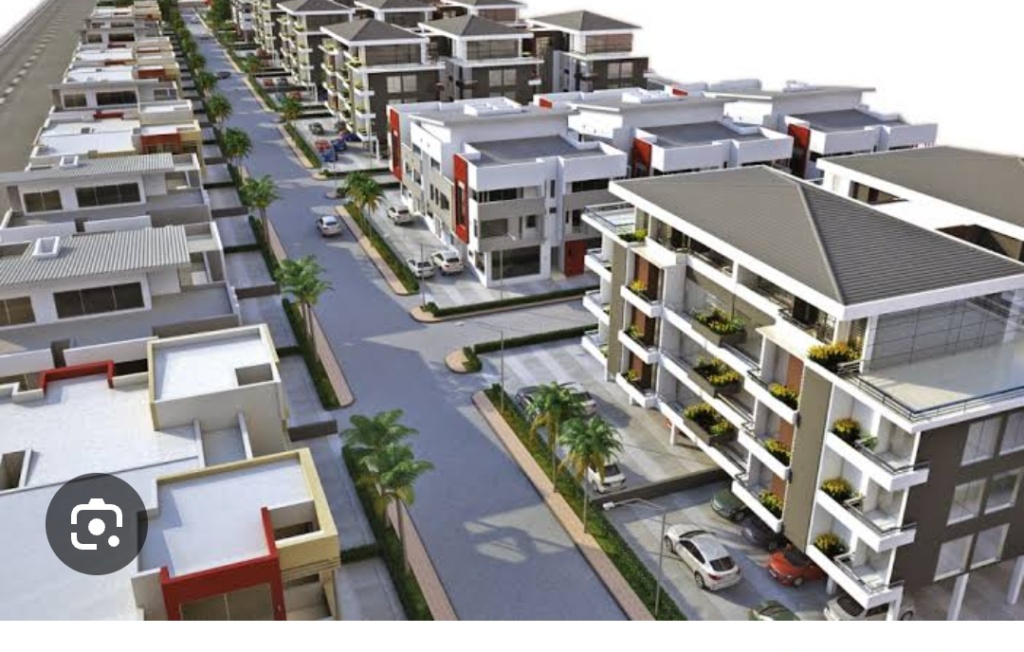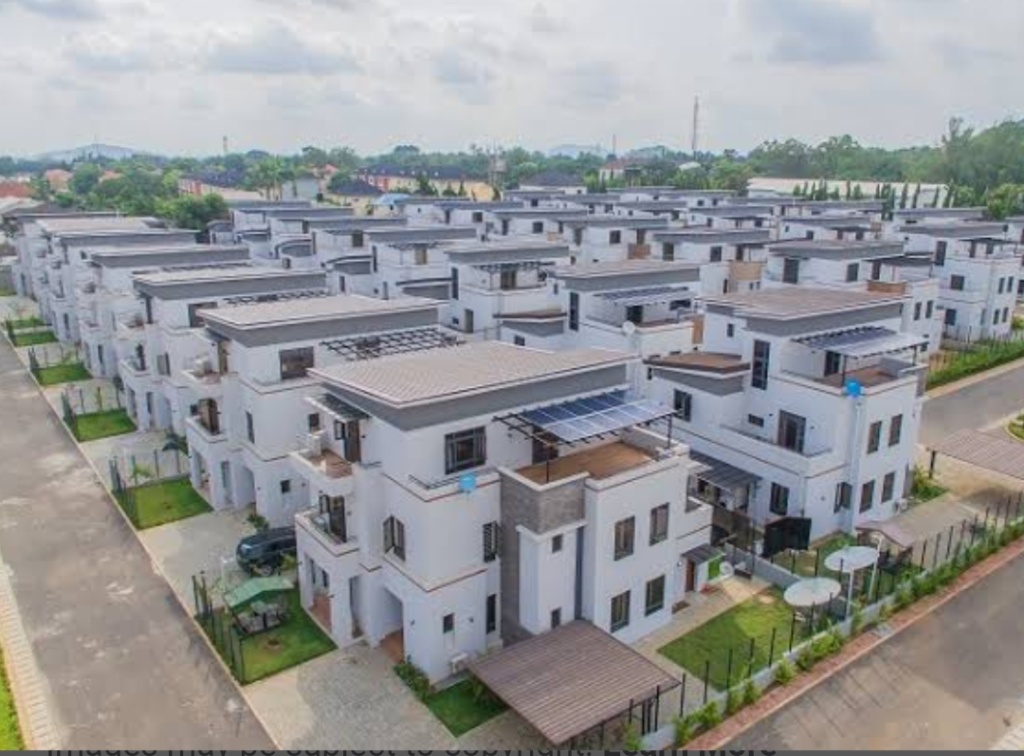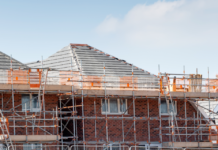
By Dayo Jacob – The Nigerian government has been urged to increase income and the availability of affordable housing units in the major cities.
This advice is coming following the new challenge being experienced by new accommodation seekers and tenants in some of the Nigerian urban centres.
According to experts, the government should do everything possible including collaboration and introduction of incentives to real estate developers in order to increase home ownership among Nigerians.
African Voice’s investigation shows that tenants and new accommodation seekers are not finding it funny in Nigerian cities of Lagos, Port Harcourt and Abuja as landlords jacked up house rents arbitrarily to stay afloat of the ongoing economic hardship in the country.
As tenants are struggling to meet their yearly rental payments’ obligation despite the shrinking resources available to them, it was gathered that landlords are not living any stone unturned thereby increasing house rents in order to lessen their financial pressures.
One of the affected tenants in Ojota, Lagos, Mr. Joe Omotayo, lamented over the upward review of his rent by the landlord.
According to him, the rent of his mini- flat was jacked up to N1million from the initial N600,000, despite the economic challenges.
He described the new rental value as “outrageous”, pointing out that the landlord was not the only person affected by the nation’s economic challenges.
He added that the most annoying thing was that the house was old and lacked proper maintenance.
According to him, all efforts to persuade the landlord to maintain the initial rental value until the situation gets better proved abortive as new accommodation seekers are waiting and ready to pay the new rate.
He blamed the indiscriminate rents’ increase on low supply of accommodation in Lagos, saying that the number of people that are looking for house’s to rent outweighed the available units.
Another tenant, who has been hunting for a new accommodation in OJota, Mr. C. Fidelis, said that the most common thing in the neighborhood r was to wake up and discovered that the landlord has sold the house to a new person.
While this has become the new trend in Ojota, he said the present economic hardship in the country as a result of fuel subsidy removal, floating of naira, general inflation and high interest rate, aggravated the situation.
“There’s no new house to rent in Ojota now. Most landlords in Ojota are now selling their old buildings and tenants are being thrown out,” Fidelis said .
For Mr Kayode Aboyeji and Kunke Agbele, who reside in Abuja and Port Harcourt respectively, the situation in Lagos also played out in these cities.
Aboyeji said that in Kubwa, Mararaba, Yanyan and Lugbe, among others, landlords have also increased their house rents
According to him, one-room self contained has been jacked up from N250, 000 to N400,000 per annum, while two bedroom cost between N800,000 to N1 million from the initial N400,000 and N500,000 per annum.
In Port Harcourt, Rivers State, Agbele said that rental value for mini flat cost between N500,000 and N1.4million, depending on locations.
In Lagos, further investigation show that rents for mini flat in locations like Ketu, Ojota, Maryland, Yaba ,Surulere have been jacked up between N1million and N1.6million; while it cost N550,000 and N800,000 in Abule Egba, Ipaja, Ayobo, Egbeda.
In locations such as Magboro, Opic, and Arepo in Ogun State, rental values of mini flat have been raised to between N800,000 and N1.2 million.
Some built environment professionals said that demand for accommodation in these cities outweighed supply.
Speaking to the issue, Co- founder and Chief Executive, SmallSmall, Mr. Tunde Balogun, said that the rents’ situation has reflected a broader challenge many Nigerians are facing in today’s economy.
The increase in rent, he said could be attributed to several factors, “one of which is inflation which plays a significant role in the way we as Nigerians manage our personal affairs and businesses.”
As the cost of living rises, he said that the costs associated with property maintenance, utilities, and other essentials that landlords must cover also increased.
He said:” In many cases, landlords are also facing increased financial pressures. To maintain their investments and cover these additional costs, they may feel compelled to raise rents.
“However, this creates a difficult cycle. Tenants are already burdened by the rising cost of living, leading to a growing sense of insecurity and uncertainty.”
The implications of higher rent’s costs, Balogun said could lead to tenants being unable to keep up with the rising costs.
For tenants to weather the storm, he is of the opinion that it would require a concerted effort from both the government and the private sector.
According to him, the government has a crucial role to play in regulating rent increases, particularly in these harsh times.
He pointed out that implementing rent control measures, offering incentives for landlords who keep rents affordable, and increasing the availability of affordable housing are all potential solutions that could help stabilize the situation.
On a broader scale, Balogun said:” Addressing the root causes of inflation and economic instability is vital. By fostering a stable economy, supporting job creation, and providing relief to both landlords and tenants, the government can help mitigate the pressures that lead to rent hikes.
“The situation is challenging, but with thoughtful policies and a commitment to protecting the most vulnerable, there is hope.”
“It’s a time for empathy, collaboration, and decisive action to ensure that all citizens have access to safe, affordable housing, even with the current state of the economy,” he said.
A Lagos-based estate surveyor and valuer, Mr. Femi Oyedele blamed the situation on high inflation rate fuelled by economic hardship.
He pointed out that things were very costly and that most landlords are pensioners or non-working class who must survive on their investments.
Besides, he said the scarcity of housing has made it difficult for tenants to move to another befitting property.
“There is no hope in sight for the tenants as demand for housing is greater than supply.
“The implications are overcrowding as people who cannot afford to pay rent will scot with family members and there will be increase in the number of slums,” Oyedele said
He appealed to the government to build more affordable housing in order to increase the housing ownership ratio of Nigeria which is low at 25 per cent according to Venture Africa.
Another expert, Mr Stephen Jagun, said it’s high time the government stops paying lip service to the issue of affordable housing provision.
To encourage private developers, Jagun urged the government to reduce various taxes on building plan approval and documentations, among others.
Kindly follow us on twitter:@AfricanVoice2











